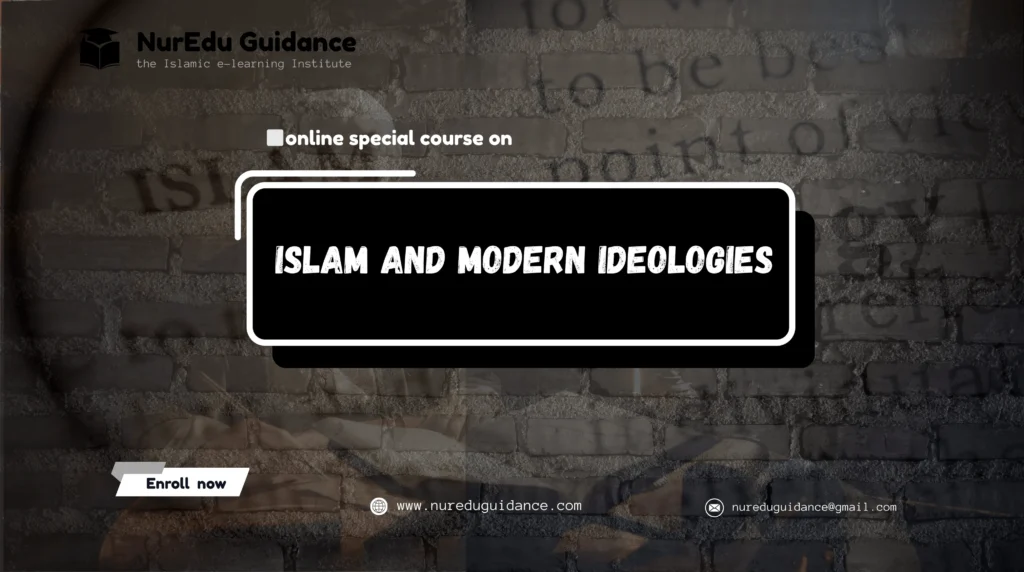Islam and Modern Ideologies
This course is presented by NurEdu Guidance

- Total 24 Class
- One to one live class
- 80 USD course fee
Course Introduction
Course Introduction: Islam and Modern Ideologies
This course explores the relationship between Islam and various modern philosophical, social, and political ideologies. It offers a comprehensive study of Islam alongside key contemporary worldviews such as Naturalism, Humanism, Liberalism, Capitalism, Secularism, Marxism, Modernism, Postmodernism, Freud’s Psychoanalysis, Feminism, and the Sexual Revolution.
The main aim is to help students understand both the differences and points of convergence between Islamic teachings and these modern ideologies. This understanding will equip learners to navigate today’s complex social and religious landscapes with insight and clarity. The course provides an analytical framework to examine current societal challenges and debates through the lens of Islamic values.
Each ideology will be examined in terms of its origins, core principles, and influence, alongside Islam’s responses and critiques. Students will also explore how these ideologies affect contemporary issues such as gender equality, human rights, freedom, economic inequality, and psychological perspectives from an Islamic viewpoint.
—
Course Objectives and Significance:
To provide a deep and balanced understanding of major modern and postmodern ideologies shaping today’s world.
To analyze these ideologies through the foundational principles and worldview of Islam.
To highlight the relevance of Islamic ethics and values in addressing modern social, cultural, and psychological challenges.
To foster knowledge and skills that promote respectful dialogue and coexistence between diverse worldviews.
—
Topics Covered:
Fundamentals of Islamic belief and ethics
Philosophical foundations of Naturalism and Humanism
Economic and social aspects of Liberalism and Capitalism
Secularism and Marxism: Theories of modern state and society
Modernism and Postmodernism: Emerging ideas and impacts
Freud’s Psychoanalysis and psychological insights
Feminism: Gender and power dynamics
The Sexual Revolution and its social consequences
Comparative analysis of Islam and each ideology
Conflicts and possibilities for harmony between Islam and modern ideologies in today’s society
—
Who Should Enroll:
Anyone interested in understanding the interface between Islam and contemporary thought.
Students, researchers, educators, and dawah workers aiming to enrich social and religious discourse.
Social workers and policymakers seeking Islamic perspectives on modern social challenges.
General learners eager to deepen their awareness of religion and ideology in the modern world.
—
What You Will Gain:
Clear grasp of key modern ideologies and their historical development.
Ability to critically assess these ideologies from an Islamic perspective.
Insight into the socio-economic, psychological, and cultural influence of Islam and modern thought.
Skills to engage in meaningful dialogue and coexistence among diverse beliefs.
Tools to apply Islamic ethical principles in addressing today’s social issues and challenges.
